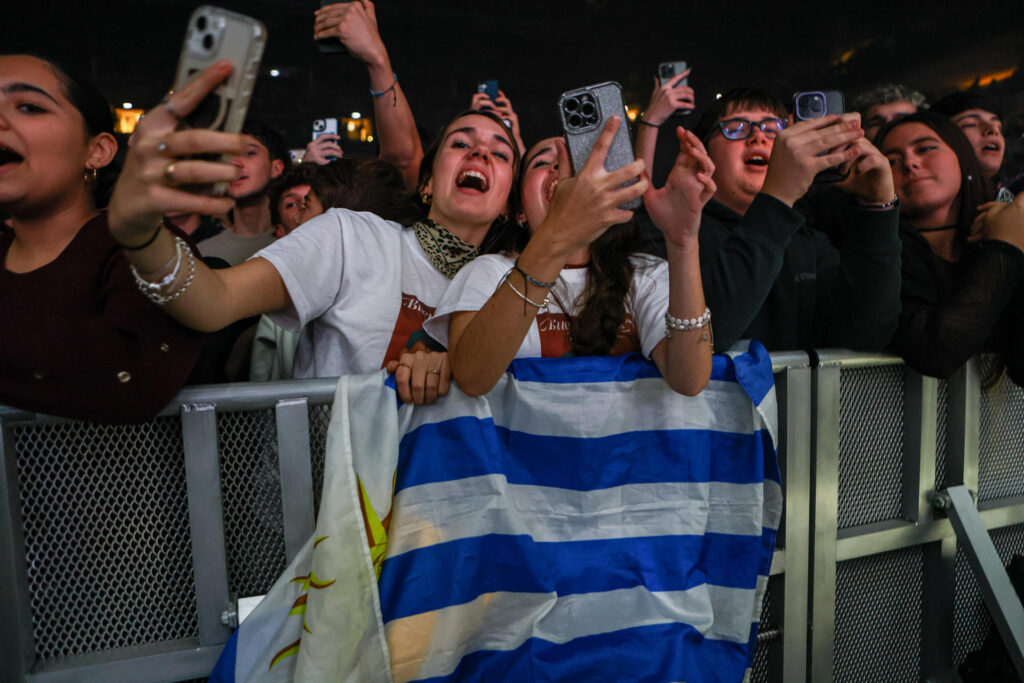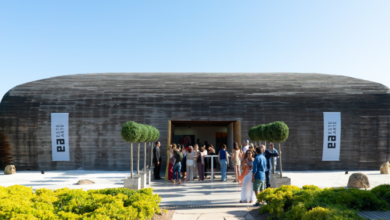Uruguay Dances Until Dawn as Quevedo’s ‘Buenas Noches’ Lights Montevideo

What began as an ordinary reggaetón concert became a dawn-long declaration of joy in Montevideo, where Quevedo—Spain’s 23-year-old streaming phenomenon—proved that a single voice, a wall of bass, and 15,000 beating hearts could bend time.
From Canary Currents to Río de la Plata Fever
Pedro Luis Domínguez Quevedo landed at Carrasco airport on Sunday afternoon brimming with the swagger of a man who can walk through duty-free and hear his songs piped from ceiling speakers. Last year, he was still a “maybe” on festival posters; this time, Uruguay’s Antel Arena sold out in twenty-three minutes. “Era otra cosa,” he grinned backstage when he spotted the sky-blue flags wedged into mixing consoles—Uruguay’s way of saying mi casa es tu casa.
His rise feels less like a career arc and more like a volcanic event. Luminate data show that “Buenas Noches”—released eight weeks ago—pulled eleven million Spotify streams in twenty-four hours, eclipsing previous Spanish-language first-day records. Juan Pimienta, music sociologist at the University of the Americas, tells EFE the feat is “the algorithm finally bowing to Iberian urban pop,” territory once dominated by Puerto Rico’s reggaetón and Colombia’s neo-cumbia.
But numbers can’t decode the alchemy of a live show. For that, you needed to be among the 15,000 bodies funneled through the Antel concourse, forgoing jerseys of Peñarol or Nacional and instead donning Quevedo’s black-and-white Canary crest. Vendors hawked chivitos next to makeshift merch stands selling hoodies stamped with “BZRP #52″—a wink to the 2022 Bizarrap megahit that first flung the singer onto every continent’s viral playlist. The cue to enter came just after 10 P.M., a single bass thud so low it rattled the beer cups along the concrete.
A Set List That Swerved from Diary Pages to Block Parties
Stage lights cut to black, and a solo synth line floated—slim, reedy, almost fragile—a confession disguised as a trap. Neon scarlet columns ignited, and the floor surged forward as if magnetized. Without so much as a greeting, Quevedo pivoted into “Duro,” his baritone sliding over a dembow beat that shook the catwalk risers. Somewhere in the crush, teenager Micaela Pintos burst into tears. “I told my mom it’s just a concert,” she later laughed to EFE, colored quartz glittering below her eyes, “but it feels like the diary I never dared read aloud.”
Mid-set brought the emotional fulcrum. Strobes faded, violet haze pooled, and “Piel de Cordero” unfurled. In place of phones, the crowd raised open palms as if trying to feel the songs exhale on their skin. The hush was eerie—Montevideo crowds are famously chatty—but it lasted for the entire three-minute lament. Then the downbeat of “Playa del Inglés” cracked that spell, horns blared, and 15,000 throats roared the chorus: “Nos perdimos en la arena…”
Critics sometimes question whether a single artist can bridge the gap between trap introspection and reggaetón abandon. Sunday offered proof. Rolling Stone España praised Buenas Noches as “Spanish urban’s first fully autobiographical concept record.” Live, that concept became choreography: clenched-fist verses resolving into shimmy-shouldered hooks. Uruguay danced.

When Streaming Giants Meet Stadium Ghosts
Yet the night’s electricity hummed against darker currents outside the arena. Only eight miles away, National Guard trucks idled near downtown protests against ongoing U.S. immigration raids—a crisis poignantly covered by EFE throughout June. That tension seeped in when Quevedo paused after “Yate“ to thank “todo el mundo migrante que hace familia lejos de casa.” He dedicated “Ahora y Siempre“ to them, lifting Uruguay’s flag with one hand, the Canary banner with the other, a wordless acknowledgment of shared displacement. Fans screamed until the screen cameras blurred with condensation.
That fusion of politics and party is baked into Quevedo’s career. During COVID lockdowns, he recorded verses inside a bedroom closet; eighteen months later, algorithms catapulted him into global playlists curated by the same tech that still separated children from parents at airports. “I know exactly who streams my songs at 2 A.M.,” he told Spanish radio last month. “They’re the same kids sending their mom emojis instead of kisses because airfare is brutal.”
Montevideo’s arena accommodated that complexity. Lasers sketched constellations from the Canaries to the Southern Cross. “No te imaginas lo que hice pa’ llegar hasta aquí,” he sang in “Punto G”—You have no idea what I did to get here—and every cellphone flashlight bobbed like a vote of confidence.
The Encore That Turned Heartbreak into Communion
Of course, the finale could be nothing but Bizarrap Music Session #52. The opening synth jab was enough; the crowd inhaled, then detonated. “Quédate,” they shouted—stay. Neon confetti erupted, ticker-taping verses about insomnia and departures. A cameraman panned across the pit: security guards mouthing lyrics, couples kissing inside surgical masks, an elderly pair clutching a grandchild between them.
After the last beat, Quevedo did something small yet unforgettable. He unfolded Uruguay’s sun-splashed flag, pressed it to his chest, and bowed so low his cap brushed the stage. “Prometo Volver,” he whispered into the mic—I promise to return.
Backstage, he told EFE the arena felt like **”una discoteca con cielo”—**a nightclub with a roof made of sky. Monday morning, he would fly to Buenos Aires for two sold-out nights and then cross the Atlantic to headline Bilbao’s BBK festival. But an island kid rewired Andean-Atlantic pop’s power grid in Montevideo for a few pulsing hours.
Elisa Bertoni, a musicologist at Uruguay’s Universidad de la República, said, “We’ve spent decades importing dance rhythms—cumbia, funk carioca, Dominican dembow. Last night, Uruguay exported 120 decibels of unfiltered electricity straight to Spain.”
Also Read: Mexican Television Pioneer Chespirito Inspires Fresh Biographical Series
When house lights finally rose, the seats were littered with lyric-printed confetti. Cleaning crews swept as dawn light seeped through the arena’s high glass. Still, pockets of fans lingered, reading the stray slips aloud—tiny paper souvenirs from a night when Montevideo decided that Monday could wait because Sunday hadn’t finished singing yet.





